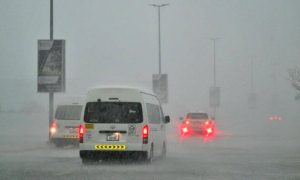By Dilip Chaware
As the economy is booming with India marching towards becoming the third largest economy in the world, the Mumbai Metropolitan Region Development Authority (MMRDA) has decided to participate by planning seven new development nodes around Mumbai. These are planned to be developed on the lines of the Bandra Kurla Complex (BKC).
As the Trans Harbour Link (THL) connecting Mumbai with the mainland is nearing completion and with the new airport coming up just outside Mumbai, the region is expected to contribute immensely to the development process. It will be complemented by the Delhi-Mumbai Industrial Corridor and the Dighi port. Cumulatively, the process will generate lakhs of employment opportunities and speed up development of the region. The huge cargo handling capacity at Jawaharlal Nehru Port Trust has already created need to enhance the infrastructure around.
The new seven nodes are to come up in Thane, Palghar and Raigad districts over 98 villages. Once the metro rail network is commissioned, the region will be the largest development complex in India. The areas of the new nodes will be developed in Navi Mumbai, Poynad, Kharbao, Boisar, Neral, Karjat and Alibaug in these three districts. The Virar-Alibaug transport corridor will be another factor that will play a significant role in the process.
It is proposed to appoint MMRDA as special planning authority for the purpose. MMRDA had been studying the proposal for nearly a year. The study has been completed. Now, it will be decided by the state government to take a final decision.
Various factors like the demographic profile, topography, potential of new industry and business and proximity to the major cities and towns along the route have been taken into account by MMRDA while structuring the proposal.
As different states are vying to participate in making India a 5-trillion dollar economy, Maharashtra is determined to retain its prime position as the most advanced state in the country, according to senior officials in the knowledge of the planning.
Dilip Chaware
A veteran journalist, formerly Special Correspondent, The Times of India, Mumbai.


























 WhatsApp us
WhatsApp us
Pingback: kaspa asic miner
Pingback: ks
Pingback: รับผลิตป๊อปคอร์น